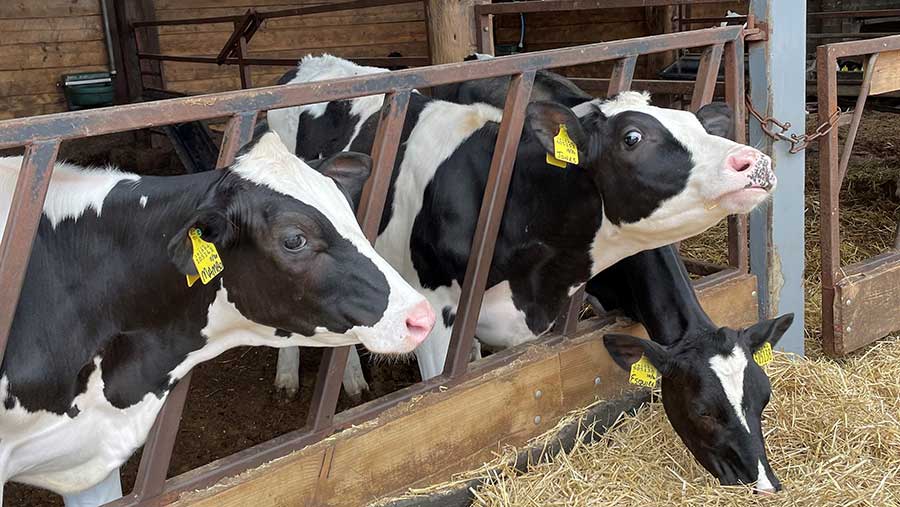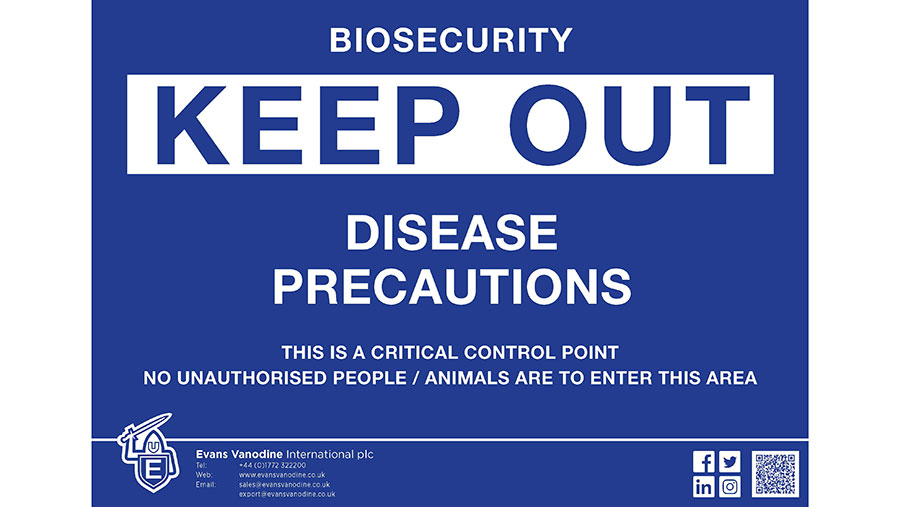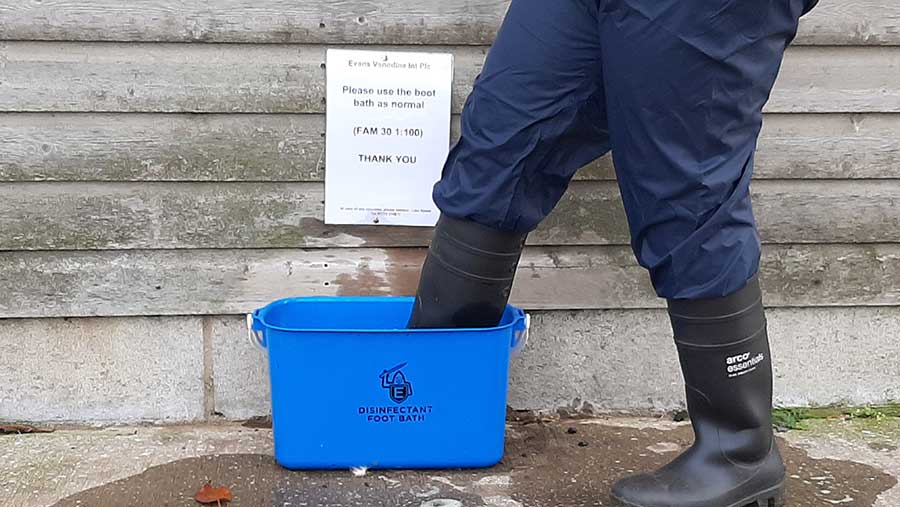Advertiser content
5 tips for farmers to adopt a robust biosecurity programme
1. Understanding what biosecurity actually means
Biosecurity is the prevention of pathogenic transmission through effective cleaning and disinfection protocols.
The key focus of biosecurity is preventing disease through controlling the areas of potential contamination and avoiding micro-organism transmission into and across the farm from both external and internal sources.
The protocols associated with biosecurity programmes originated in the food industry with HACCP (Hazard Analysis and Critical Control Point).
The seven basic principles employed by HACCP for food safety are in place to prevent biological, chemical and physical contamination of food.
These principles include:
- Hazard analysis
- Critical Control Point (CCP) identification
- Establishing critical limits
- Monitoring procedures
- Corrective actions
- Verification procedures
- Record-keeping and documentation.

© Evans Vanodine International Plc
2. Recognise the importance of biosecurity
An effective biosecurity program is essential in ensuring a more profitable farm due to:
- Improved livestock health
- Increased feed conversion
- Reduced medical costs
- Improved yield
- Higher-quality food for the consumer.

© Evans Vanodine International Plc
3. Identify your critical control points
A key element of biosecurity is the identification of critical control points (CCPs); the point at which contamination can occur.
All farms are different, so a custom approach is required. The main CCP areas to look out for are:
- Entry control – personnel, supplies and vehicles
- Import of livestock on to the farm
- Feed and nutrition
- External and internal water supply
- Equipment and maintenance
- Dispatch and waste management
- Cleaning and disinfection
- Pest control.

© Evans Vanodine International Plc
4. Develop a plan to control the risks
Taking each CCP in turn, a plan needs to be developed to control each risk.
For example, for entry control, people are identified as a major cause of contamination; therefore, a plan needs to be in place to ensure that contamination can be prevented.
Protocols such as:
- Foot baths and wheel dips installed at entry points with an effective and Defra-approved disinfectant such as FAM30.
- Providing changing areas where farm workers and visitors can change before entering the farm and high-risk areas to prevent contamination through clothing.
- External car parks for farm workers and visitors to prevent contamination via vehicles.
- External meeting areas so that no one enters the farm who doesn’t need to.

© Evans Vanodine International Plc
5. Train personnel on how to follow the plan and audit the implementation
The plan for each CCP needs to be documented, but it is no good if the farm workers aren’t properly trained and don’t understand the importance of following the rules which have been set out.
Full training for all staff needs to be carried out, with regular monitoring and auditing of all CCPs to ensure all procedures are followed.
If regular monitoring and auditing is carried out by trained personal, contamination can be prevented and, therefore, stop disease outbreaks.
Evans Vanodine is an independent British family business, who have been sharing their expertise since 1919.
The business manufactures consistent, efficient, and cost-effective products while maintaining optimum quality across all divisions.
They work closely with their distributors and the farms they serve to provide programmes for improved animal health leading to a more profitable farm.
The company produces an extensive range of cleaning and disinfection products for multiple applications within the animal health sectors, including Defra-approved and Veterinary Medicines Directorate (VMD)-regulated products.
Evans’ range of Defra-approved products will enable you to devise an effective biosecurity programme to protect your farm from disease.
To find your local distributor contact sales@evansvanodine.co.uk or visit their website to view the full product range.
Provided by
Evans Vanodine is an independent British family business who manufacture an extensive range of cleaning and disinfection products for multiple applications within the professional hygiene, dairy and wider animal health sectors.
